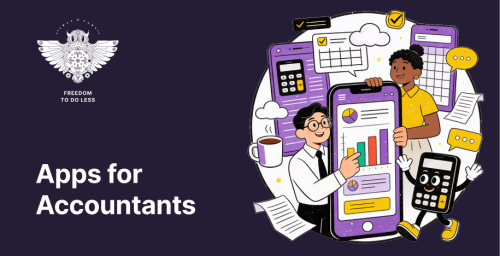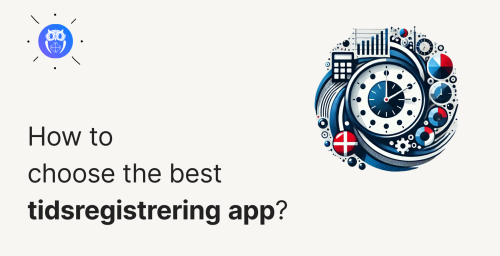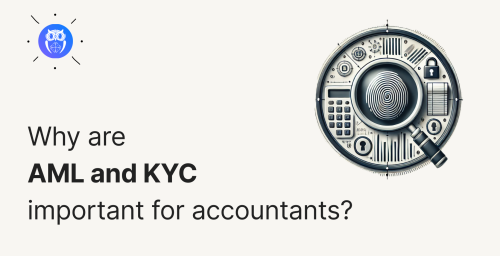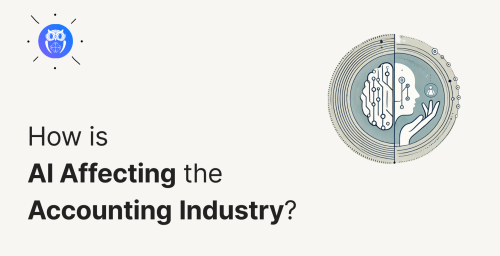According to research, by 2030, automation, digitisation, and artificial intelligence will cut jobs by 29% while contributing as little as 13% to job creation. How can we improve? The solution is upskilling accountants. Whether you are an accountant or the manager of an accounting firm, let’s discuss how to beat technology in this space race.
Further reports from Oxford University predict that even by 2033, 47% of current jobs will also cease to exist. It does not mean there will be fewer jobs per se, only that humans will no longer do half of the current roles.
You may think, hang on, but some of the most wanted professions nowadays didn’t even exist a decade ago. For example, who’d thought we need the following job titles:
- Social media manager
- Uber driver
- YouTube content creators
- UX Designer
- iOS Developer
- Big data analyst
- Chatbot consultant
- Digital accountant
As the onset of digitisation increases, a whole new list of jobs will emerge. Should we be worried about the jobs and upskilling accountants at all?
Difference between reskilling and upskilling
Reskilling is learning new skills so workers can do a different job or training people to do a different job. Upskilling is learning new skills so that workers can improve doing the same job role.
For example, if a software development company chooses to begin designing products in a newer, cutting-edge programming language, all affected developers will need to learn the new language first, in addition to the programming languages that they already use.
Reskilling is slightly different.
When organisations reskill employees, they replace outdated skills with new skill sets to meet changing market needs. Training a car manufacturing worker to code and become a developer is an example of reskilling.
Do accountants need upskilling?
As mentioned, the question is not whether we will have jobs in the future; the question is whether workers will have the right skills to be able to do them.
What does this mean?
Organisations’ challenges in upskilling professionals involve not only delivering the right skill set for the future but also ensuring that the skill set is relevant when a worker enters the workplace.
Current technological trends bring an unprecedented rate of change in the core curriculum content of many academic fields.
According to one popular estimate, 50% of subject knowledge learnt during the first year of a four-year technical degree becomes outdated by the time of graduation.
The shortage of required skill sets impacts not only technical and vocational professions but also numerous industry sectors.
Subject knowledge taught becomes quickly outdated in only a few years.
If a student graduated with a marketing degree 3–5 years ago and has not worked a day in that area until now, they will likely have to learn it all over again.
Even UK accountants must learn new digital skills as the UK government continually pushes to move Tax matters online with their Making Tax Digital programme. Upskilling accountants in the tax department is inevitable.
And it is only a UK concern, according to the World Economic Forum, 65% of children in the school system today need to be prepared for jobs that have not been created yet.
Is the UK government concerned about accountants?
Yes, they are.
Even as far back as 2017, the UK government recognised that Britain has a skills shortage when considering the skills gap UK businesses face. UK Government statistics confirm that 72% of large companies and 49% of SMEs are currently suffering from a tech skills gap. Here’s where upskilling accountants comes in handy.
A parliamentary report said the digital skills gap is costing the UK economy £63 million in GDP.
With the potential departure of skilled talent from Brexit, the government is pumping more money into upskilling workers.
Whilst some professions are not going to be obsolete soon, they will be disrupted within.
We will still have teachers, doctors, and finance professionals in a decade’s time; however, how they do things is going to change.
Even the healthcare and medical sectors are changing.
Technological innovations allow for increased automation of diagnosis and personalisation of treatments, redefining many medical roles to translate and communicate this data effectively to patients.
The professions will keep similar job titles; however, the job descriptions for most occupations will continuously change.
Hence, the skill set required will change as well.
Workers are demanding to be upskilled, even accountants
Employee expectations have changed.
Employers need to upskill because newer professionals are not satisfied in their roles unless they are given proper learning opportunities.
In a recent Generation Z workers survey, 91 per cent cited professional training as an essential factor when choosing an employer to work for.
And it is not only Gen Z employees either – smart professionals of all ages, particularly millennials, know they need to continually develop their skills if they wish to remain relevant in their current working environment.
Typically, they don’t have the time or resources to invest in upskilling outside of their work schedules, so they turn to their employer to offer tuition support or additional skilled accreditations.
Even before accepting a job position, the millennial generation, in particular, are challenging employers to demonstrate that they have a professional development programme or a roadmap for career progression.
Employees who feel their employer invests in recruitment and professional growth are more likely to stay for the long haul.
Additionally, if employees are upskilled to better succeed in their roles—mainly when job requirements change—they will be happier and more motivated in their work.
Six tips for beginning upskilling accountants
1# Invest in personalized development plans
Each worker has their own individual and professional background with their own set of existing skills.
Each employee needs various levels of expertise in being taught new skills to remain effective in their jobs.
That’s why organisations should get personal when designing personalised upskill training – understanding each employee individually within their role as opposed to viewing them as part of a group.
2# Mentoring and shadowing
Evident in both the legal and accounting professions, is the use of mentors. Longer-term employees have ample subject-matter knowledge that could easily be shared with newer employees.
Newer employees are more digitally savvy so they can share their knowledge base with senior workers.
Mentors can test their leadership skills whilst employees gain valuable real-world experience and advice that is not obtained in a classroom setting.
3# Lunchtime training sessions
Lunchtime training is an effective way to upskill staff who have limited time resources outside of work to learn.
Organisations can either provide lunch or ask attendees to bring their own to the training sessions. Outside experts can be brought in to lead the sessions so that all employees benefit from their expertise.
4# Microlearning
Many companies offer flexible and remote working for their employees, meaning it is challenging to get staff together for on-site training from different locations.
For specific subjects, like ensuring employees’ understand how to use a particular software program, learning in sharp bursts can be particularly useful.
One solution is online platform training, where workers can log in at designated times and follow an online course facilitator whether as a group or single lesson.
Microlearning can be watching a short web-based video focussing on a particular topic, complete with a quiz or exercise at the end to ensure what was taught is understood.
Microlearning sessions typically range between five and 10 minutes long, meaning employees can take part almost any time they have a small break throughout the day.
5# Tuition reimbursement or assistance
Sometimes, it is a requirement for workers need to study a subject more in-depth, in a way that goes beyond an organisation’s capabilities.
When these situations arise, it is better to consider sending an employee to complete a related course or an industry-recognised certification programme.
Many businesses offer their employees either part or full-time course tuition payments.
6# Remember to keep training – it is not a one-off event
It does not make sense only to provide training once, or even once in a while. Skills can become outdated around 3-5 years.
Employees should experience regular and ongoing training to improve their skills and remain valid in the changing workplace.
Acquiring new skills requires time and practice, but learning new skills is only the start of upskilling.
Employees must continually develop to master the evolving requirements of their jobs.
Final thoughts
Developing upskilling opportunities at your company isn’t only smart; it’s business-critical to the health and growth of your organisation.
Forward-thinking companies will consider what they need their staff to learn and what training and development methods are best to reach those goals.
For the workers, the benefits are they will be better at their jobs, more motivated and more likely to remain with the company.
Employees are highly vulnerable to changing business needs, processes, and job descriptions.
Don’t leave them behind.
Instead, proactively design training to upskill employees so that they can perform at their best for your business.



















